Discover the Surprising Reason Spiders Don't Get Caught in Their Own Webs
Have you ever wondered why a spider doesn’t get caught in its own web? After all, chances are you’ve seen countless insects caught in this sticky silk. Continue reading below to learn the surprising reasons spiders don’t get caught in their own webs, along with the answers to other web-related questions!
Why Don’t Spiders Get Caught in Their Own Webs?
The main reason that spiders don’t get caught in their own webs is that their legs have special, non-stick adaptations.
First, they sport bristle-like anatomical structures known as setae on the ends of their legs that help reduce their contact with their sticky webs. Recent research has also revealed that spiders have a special non-stick chemical coating on their legs that helps them navigate their webs without getting tangled.
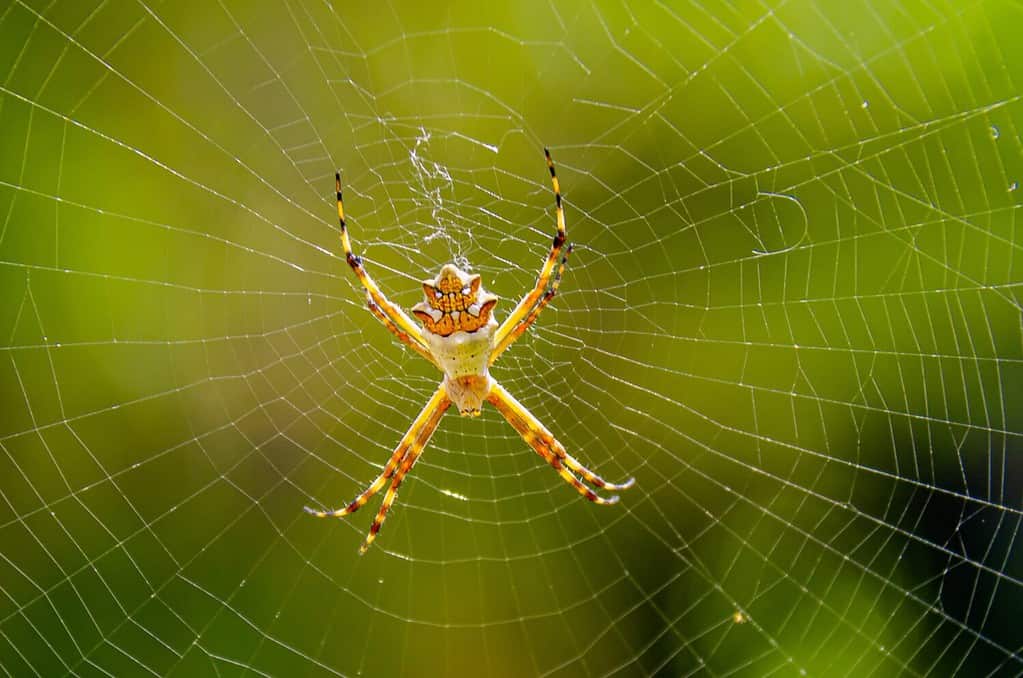
©Carlos Campi/Shutterstock.com
Other Non-Stick Features
Along with these specialized features, spiders also have innate instincts that help them navigate their webs. They are able to weave non-sticky portions that they can use to travel around the web. In areas where the webs already have their signature glue-like coating, the spider understands how best to contract its legs and walk so as to avoid sticking to the web.
How Do Spiders Not Run Out of Web?
Spiders do not run out of silk as they are able to continuously produce it.
There are two main anatomical structures responsible for producing those beautiful webs that spiders are so well-known for. The first is an internal gland, and the second is spinnerets. A spider’s silk begins in these internal glands as a liquid. This liquid hardens into a solid form. The spinnerets are connected to these internal glands, and these are what allow the spiders to control those wispy strands of silk and construct webs.
Because the spider is constantly able to produce silk, so long as it is healthy, it will not run out of web.
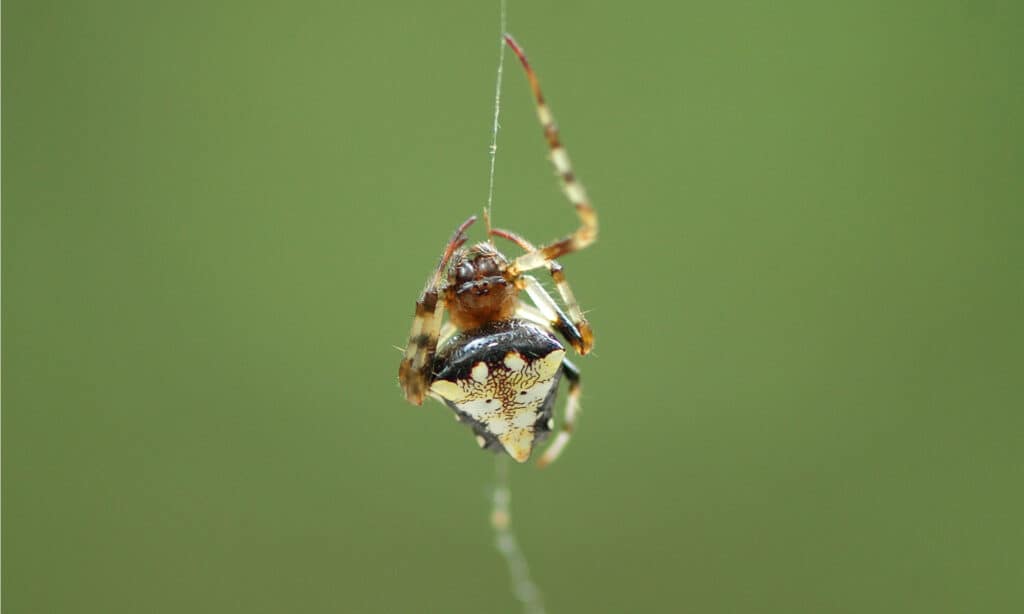
©Rusty Dodson/Shutterstock.com
Do All Spiders Build Webs to Catch Their Prey?
Web-building is likely one of the most well-known hunting strategies of spiders. However, it isn’t the only way that they secure their next meal.
In order to better understand this answer, it’s important first to know exactly what a web is. Different species of spiders can weave silk in different ways. However, not every structure made of spider silk is a web. Some spiders use their silk in different ways, such as to create egg sacs or draglines. While these may occasionally be used to capture prey or otherwise benefit the spider, they’re not webs.
So, while around half of the known species of spiders use a web to capture their prey, not all of them do. Some spiders use their silk in a different way to capture prey. Other spiders, like the wolf spider, don’t use silk at all when it comes to planning their next meal.
Wolf spiders are named for their characteristic of actively hunting down prey. Trap door spiders, on the other hand, prefer the element of surprise and will ambush prey that wanders too close. However, neither of these species uses a web to catch their prey.
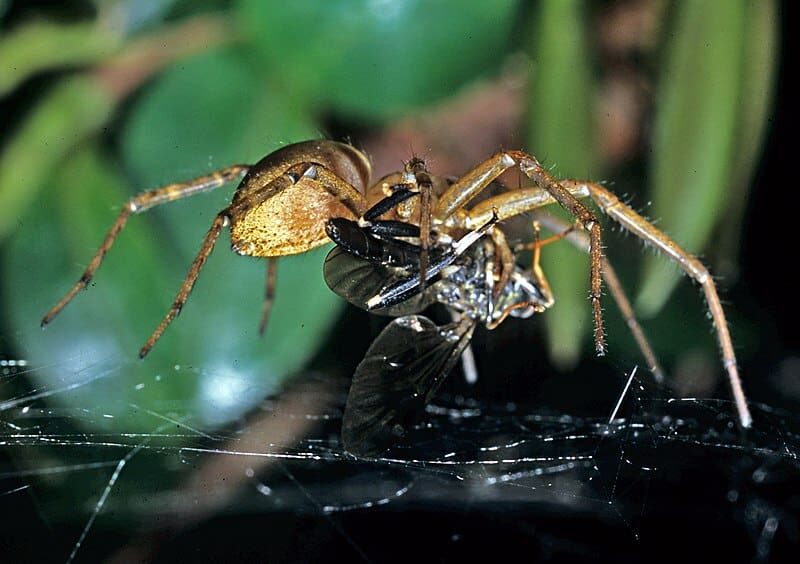
©Don Horne 1,800 × 1,270 pixels, file size: 1.66 MB, MIME type: image/jpeg NZAC06001380.jpg – License
Why Do Spiders Stay in Their Webs?
Web-spinning spiders can remain motionless for long periods of time. In fact, chances are, if you’ve ever had a garden spider appear near your house, you’ve been able to watch it sit still for up to hours at a time. However, why do spiders stay in their webs, and why do they sit still?
Most of the time, if you see a spider sitting still in its web, it is waiting for food. When an insect lands in a spider’s web, they are able to sense the vibrations through the strands of silk. This alerts them that dinner has arrived. And once their web is complete, their main goal is survival, which involves waiting for food.
Other spiders may sit motionless as well, even if they’re not in a web. Like with the trad door spider mentioned above, this spider will sit still in their home so as not to startle away any prey that may be nearby. This allows them to ambush the insect or other animal and capture their prey.
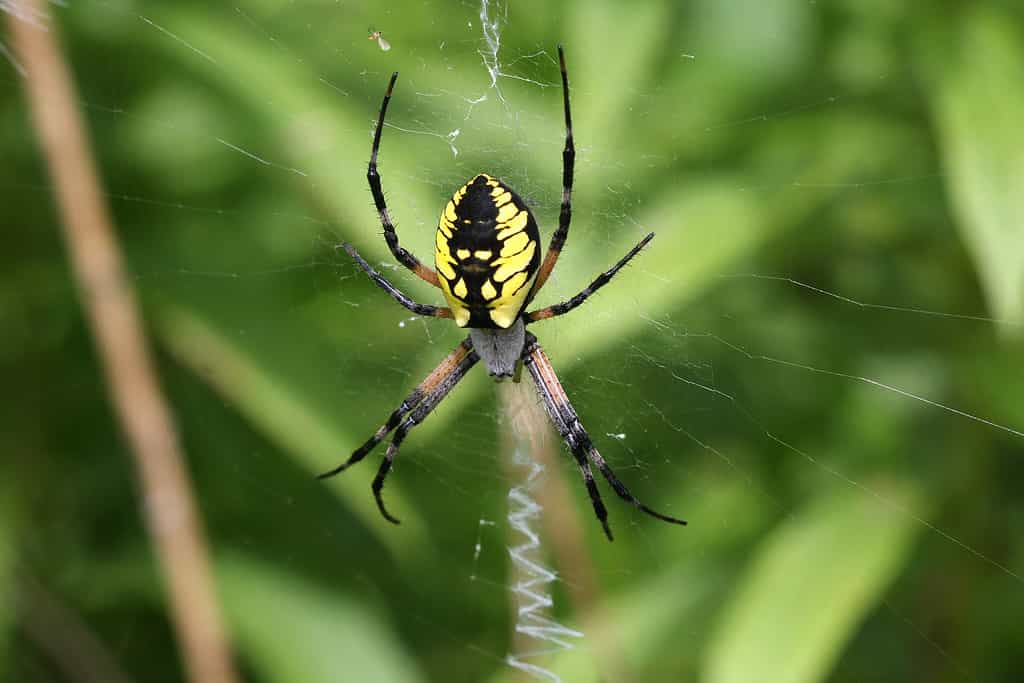
©Ron Rowan Photography/Shutterstock.com
Will a Spider Steal Another Spider’s Web?
Not all spiders are willing to build their own webs despite having the ability to do so. Take the cellar spider, for instance. Do you remember how we mentioned above that spiders can sense when the prey has landed in the web due to movement? Cellar spiders will approach a web they’re interested in and trigger this reaction. When the owner of the web arrives, expecting a meal, the cellar spider turns the tables by covering the resident spider in silk and then eating it.
Once the cellar spider has eaten the previous resident of the web, it will take over the silk structure — as well as any prey that it had been saving in the web.
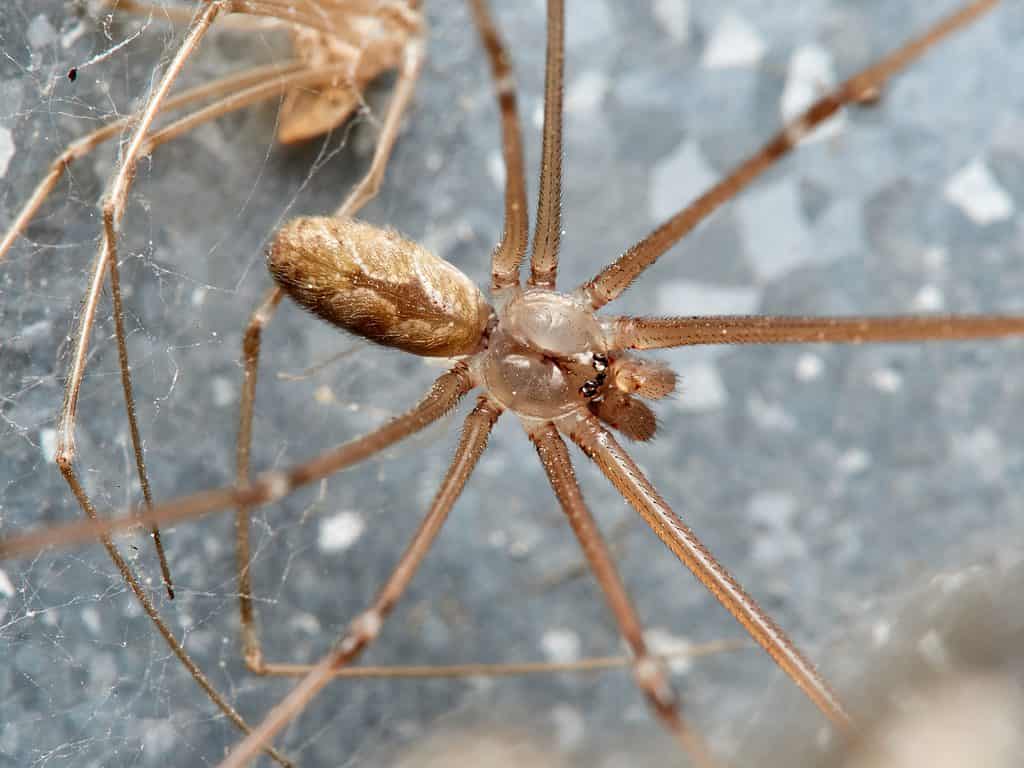
©Macronatura.es/Shutterstock.com









